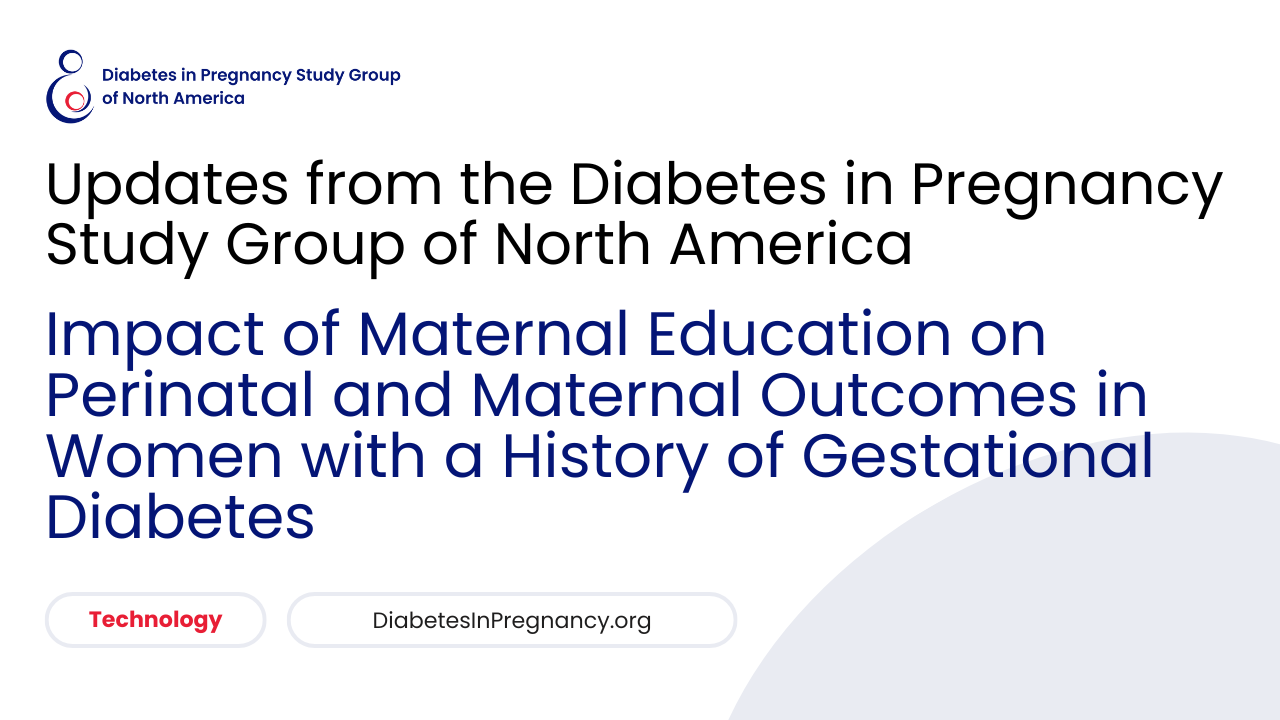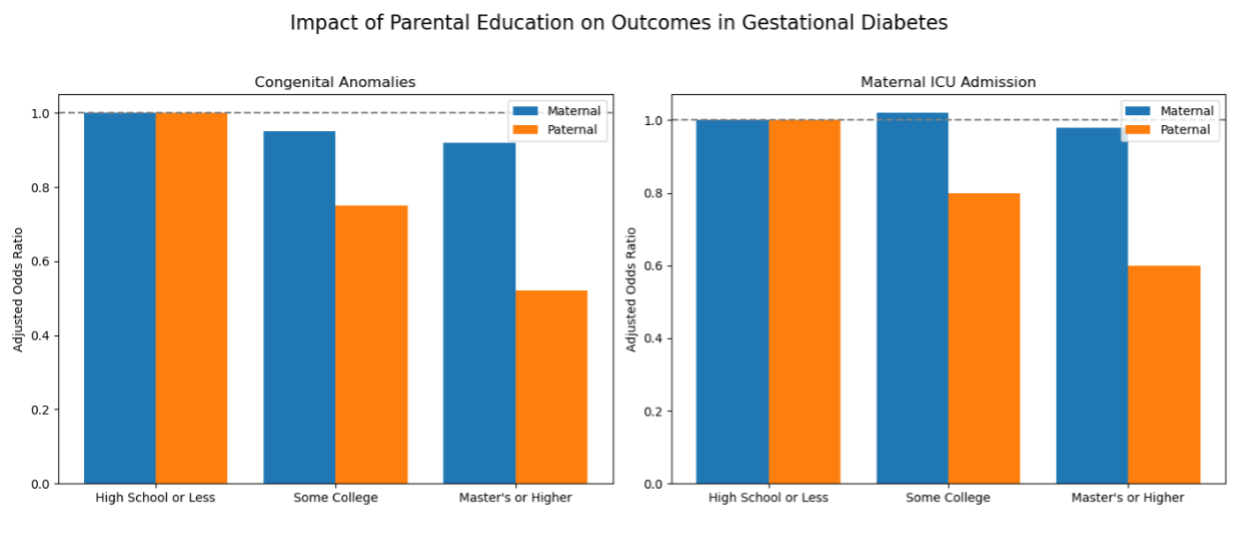Impact of Maternal Education on Perinatal and Maternal Outcomes in Women with a History of Gestational Diabetes
Jul 14, 2025
Collazo Melian K, et al. Cureus. 2025 Apr 26;17(4):e83044. PMID: 40438814; PMCID: PMC12116785.
This retrospective cohort study investigated the association between parental education and adverse perinatal and maternal outcomes in women with gestational diabetes mellitus (GDM) in the United States. Using data from the National Vital Statistics System-Natality (NVSS-N) from 2019–2020, the study analyzed 541,117 singleton births to women aged 18–34 with GDM with primary outcomes of at least one congenital anomaly (e.g., neural tube defects, congenital heart disease, cleft lip/palate), and maternal ICU admission. Key findings include:
- Maternal education level (categorized as high school or less, some college, or master’s degree or higher) was not significantly associated with either congenital anomalies or maternal ICU admission in adjusted models.
- In contrast, higher paternal education was significantly associated with reduced odds of both congenital anomalies and maternal ICU admission. For example, fathers with a master’s degree had a 48% lower adjusted odds of their child having a congenital anomaly (OR = 0.52, 95% CI = 0.33–0.80).
- Other significant predictors of adverse outcomes included maternal race (non-Hispanic Black and Hispanic mothers had lower odds of congenital anomalies compared to non-Hispanic Whites), maternal BMI (obesity associated with higher ICU admission), and delayed prenatal care initiation (second trimester care associated with increased odds of both outcomes).
While maternal education is often linked to health literacy and outcomes, this study did not find a direct association in the context of GDM. However, paternal education emerged as a potentially important social determinant, suggesting that broader family-level educational and socioeconomic factors may influence maternal and neonatal health. The authors conclude that these findings highlight the need for comprehensive, family-centered approaches to education and care in GDM management, and that further research is warranted to explore the mechanisms by which paternal education influences outcomes and to identify modifiable targets for intervention.

Get Monthly Updates to Your Inbox
Join our mailing list to get a round-up of new updates at the start of each month, for free.
We will never sell your information, for any reason. You can unsubscribe at any time.

